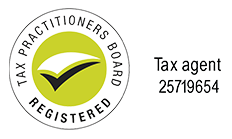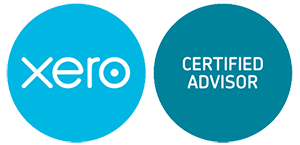How to Buy Your Home
… An Accountant’s Perspective
To invest profitably in a home (or an investment property, for that matter) you must “do it right” in five ways:
- You must buy well,
- You must structure the ownership correctly,
- You must borrow correctly,
- You must have the right advice, and finally
- You must hold for long enough.
Buy your home – or not?
The “rent or buy” argument has been raging forever and will doubtless continue. The main arguments in favour of renting your home are:
- Freedom to move house frequently and cheaply,
- Lack of responsibility for the property and its maintenance, and
- Not tying up your capital.
The main arguments in favour of owning your home are:
- Investing your capital in an asset that will grow in value and which has a tenant who will take very good care of it,
- Being able to add value from your own effort and sweat,
- An excellent forced saving program as you pay it off,
- Ability to borrow against your equity to make further investments, and
- The unquantifiable but immense emotional dividend of living in your own place.
There are ways investing in your home that make money for you, and there are ways that do not. To invest profitably in a home (or an investment property, for that matter) you must “do it right” in five the ways. In any one situation and for any one person or couple, the perfect combination of these five ways will be different.
Buy Well
In lesson one, day one of Real Estate 101, the lecturers preach the three considerations when buying real estate and they are: Location, location and location. They are wrong. There is also price. And for home-buyers there is one further word and it is a big one: Emotion.
When you buy real estate, you are buying either to live in, or you are buying as an investment, to be occupied by somebody else. The two types of purchase are completely different.
The decision to purchase a home to live in has a high emotional content. The purchase of an investment has no emotional content at all, it is purely, 100% analytical; purely location and price.
To buy right for your own home, there will be many considerations but the main ones will be:
- Location – the area you want to live in and raise your children.
- Price – you need to be able to pay for the house and still be able to live in adequate comfort.
- Emotion – that intangible but very real feeling of being “at home”. But do try to temper the emotion with some rational thought about the other considerations.
- The future – what will the area be like in 10 years?
- In 20? Will you still want to be there?
- Will you be able to sell? You cannot control the future but it needs to be considered.
- Taxation – not many people consider taxation in their buying decision, at least, not unless they have read this Special Report!
Structure Correctly
What is the correct structure for purchasing real estate depends upon your specific circumstances. Typically, people buy their home in their personal names. This can be done as joint tenants or as tenants in common. The difference is this:
Tenants in common own a fixed percentage interest in a property and candeal separately with their separate interests. Ownership would be expressed as “John Smith as to 50% and Mary Smith as to 50% as tenants in common” – or whatever the percentages are. John and Mary will each have a Will to deal with their estate in the event of their death and each of them can leave their interest to anyone they wish. They can mortgage or sell their separate interests.
Joint tenants, on the other hand, own the property jointly. Ownership is expressed as being “John and Mary Smith” or “John Smith and Mary Smith jointly and severally”. When one joint tenant dies, the remaining joint tenant(s) automatically inherit the interest of the deceased. Any dealing with the property must be carried out jointly.
Owning your home in personal names is the usual but not necessarily the best way to do it. The correct ownership structure depends upon questions such as:
Who is intended to inherit the asset upon the death of one or both of the owners. Joint ownership does not remove this question. The survivor of them inherits – but when that person dies…? Asset protection concerns where one or more of the potential owners has debt, is facing a Family Court action, or is a possible target for litigation. People facing these issues should take advice before acquiring valuable assets in their own names, as those assets may be taken from them by creditors and ex-spouses.
Acquiring a family home in a trust or company means the home is not owned by a person. In carefully structured situations, the house would be safe from personal creditors, if that was an issue. Regrettably, we do live in an increasingly litigious society but for most of us, the possibility of being sued such that our home is threatened is slight.
Owning the family home in a trust or company will trigger Capital Gains Tax (“CGT”) when it is sold. Australian tax law does not impose CGT on a taxpayer’s “main residence” – and only a person can have a residence.
Borrow Correctly
Financial institutions dress up their mortgage products in different ways in an effort to gain your attention and make the sale. Stripped down to the basics, the choices of mortgage are:
Principal and Interest. Meaning: Each payment you make is a combination of interest on the outstanding loan and a repayment of some of the principal amount borrowed. P&I mortgages are a good forced saving program – after you do it for long enough, the mortgage is paid off you own your home.
Interest-only. Meaning: For the life of the loan or for an agreed period, you pay only the interest and none of the principal, so preserving your cash. At the end of the interest-only period you owe the same amount as at the beginning.
Line of Credit (“LoC”) or Equity Loan. Meaning: A big, fat overdraft facility secured against the value of your home. You spend on whatever you want and repay whatever you want, within the agreed limits. Your minimum monthly repayment is the amount of interest charged for the month. Only the most disciplined borrowers should use a LoC.
“Lo Doc” loans. These are loans with “low documentation”, where, typically, the lender requires no proof of the borrower’s ability to repay. The lender is taking more risk, so will charge more in fees and interest
Which mortgage is best for you?
There are usually only fairly small differences in interest rates between the major lenders and between different mortgage products from the same lender, given the same security for the loan. Care needs to be taken and good advice is important. For instance, typically, a lower interest rate might be bundled together with higher bank fees and a credit card that also has fees and interest. Or less security taken in exchange for a higher rate of interest, more fees and mortgage insurance.
The Right Advice
There are complex legal, estate planning and taxation consequences to an apparently straight-forward decision to buy a home and borrow the money to do it. DBA Accountants provides impartial advice in return for a fee. We have no product to sell and no commission to earn. We do not seek headlines and fame. Our purpose is to help you become a wealthy, long-term client of our firm.
Hold for Long Enough
In an ideal world, you would buy your home, live happily with it for ever after and it will increase in value. In the real world however, life might not follow your plan for it and you may need to sell the property. When this happens, the team at DBA Accountants will help you answer these vitally important questions:
Must you sell? Are there other strategies available?
If you must sell, are there advantageous ways of structuring the transaction?
Has the property appreciated enough in value to recover your buying and selling costs?
What are the taxation consequences, if any?
Should You Pay Off Your Home Mortgage?
The short answer: YES. The longer answer: YES and read on …
For most people, their mortgage repayment is the biggest or one of the biggest, items in their family budget. Reasons for paying it off are:
- The pure satisfaction of watching the debt go down
- The interest is not tax-deductible and is, therefore, very expensive
- Increase your equity to allow borrowing to acquire other investments
- Eliminating the mortgage repayment allows the repayment amount to be re-directed towards asset acquisition (and a little extra spending in the domestic budget).
Under Australian law the tax-deductibility of interest is determined by the purpose to which the borrowed money is applied. If it is borrowed and used for an assessable income-producing purpose, it will be deductible. If it is borrowed for any other purpose, eg buying a home to live in, it is not deductible. The security used to borrow the money is of no relevance. All that matters is the purpose of the borrowing.
Because the interest on your home loan is not tax-deductible, it is veryexpensive money.
Example: For a taxpayer paying the highest personal rate of tax, non-deductible interest costs almost double in after-tax dollars as interest that is tax-deductible. If you invest a dollar in your home loan by paying a dollar offthe principal, your after-tax return on investment (“ROI” in accountant-speak) is very high. And there is absolutely no risk.
DBA Accountants’ advice to our clients is: Paying off your own mortgage is a very, very attractive investment, with a high rate of return and absolutely no risk, so do it. But there are ways of doing it…
How to Pay off Your Mortgage in Less Than Half the Time
Your lending institution is not a charity for your benefit, it is a profit-making business for the benefit of its shareholders and employees. Your purpose is to pay off your very expensive loan as rapidly as possible and this is how:
-
- pay more, and
- pay more frequently
Like this…
Your mortgage contract probably nominates a monthly minimum payment to be made. Divide the monthly amount into amounts aligned to when you are paid. If you are paid weekly, divide the monthly amount by 4.33 and pay that amount each week. As soon as you can, increase that weekly amount by a few dollars. Then a few more … and a few more. If you receive an increase in pay, direct some of it into the mortgage payment but keep some back to add a little more comfort to your domestic budget.
Try the calculations for yourself. Your bank or financial institution probably has a DIY mortgage calculator on its website. Use it and see for yourself the very big difference you can make with a small increase in your repayment.
Your mortgage contract will give your lender the right to change your interest rate at any time and they will do this in response to changes in interest rates in the economy. If your lender raises your interest rate, they will re-calculate your contracted payment and advise you of the new, increased amount. When they lower your interest rate, they will re-calculate your payment and offer you the opportunity to reduce your payment to the new amount.








